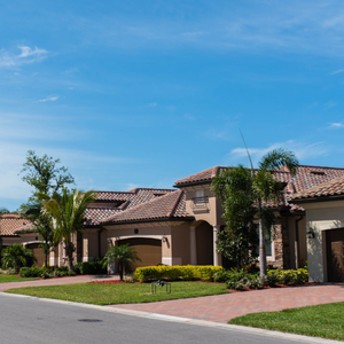
Reading Time: 5 Minutes
Selling Your Property at Auction - What Do You Need to Know?
Selling your property by auction is a great option under certain circumstances. This sales method has become popular in recent years, not least because an auction can lead to a competitive environment and ensure that you maximise the realization value of your biggest asset. However, there are pros and cons to weigh up before deciding on this method of sale.
Will I Lose Control if I Sell at Auction?
Some vendors worry that because the sales auction itself is fast-paced, they may lose control over the sale of their property. This is not the case. Although property auctions may seem daunting, reserve prices, vendor bids (placed ONLY by the auctioneer, and clearly identified as such) and unconditional sales contracts ensure you retain control over the process. Experienced real estate agents will be with you every step of the way to ensure you are comfortable before, during and after the auction.
What Sort of Properties Sell Best at Auction?
Properties with broad appeal lend themselves best to sale by auction. If your property has the ‘X’ factor, it is likely it will be desirable to more than just one buyer. Once two or more buyers are interested, the potential for a bidding war emerges. This is the best case scenario when selling at auction.
What is a Reserve Price and How is it Set?
The reserve price is the lowest price you are willing to accept for the sale of your property and is set by you as the vendor with advice from your real estate agent. The setting of the reserve means that the auctioneer will not sell your property below this figure, and is a key part of giving you control over the process.
The reserve price is usually set shortly before the auction date after you and your agent had the benefit of the feedback from potential purchasers during the marketing campaign. On very rare occasions it may be disclosed as part of the marketing campaign for a particular property. Most of the time though it is kept confidential between the vendor, the real estate agent and the auctioneer.
What is the Marketing Period Like For an Auction?
With an auction, you will have a fixed, relatively short marketing period which is less disruptive than a longer campaign. Your real estate agent will use this period to determine buyer interest and help you gauge what prospective buyers may be prepared to pay.
What Happens After a Successful Auction?
Subject to the reserve price being met, the highest bidder becomes the purchaser after an auction. When purchasing a property at auction, all bidders must be unconditional, with conditions such as a building report, LIM or finance satisfied prior to auction day.
Auctions do not have a cooling-off period so there is no delay in the conclusion of the sale. Both the buyer and the vendor need to sign a sale and purchase agreement on the day and the deposit is required to be paid.
What is a Vendor Bid?
A vendor bid is made by or on behalf of the vendor during an auction. There are rules around when vendor bids are allowed to be made. Vendor bids are only allowed before the reserve price has been reached, can only be placed by the auctioneer and must be clearly identified as such. Effectively, the ‘vendor bid’ is a device used by the auctioneer to indicate to buyers that the bidding remains some distance away from the reserve price.
What Happens Next if the Property Doesn’t Sell at Auction?
If a property doesn’t sell at auction, it is ‘passed in’. Once your property has been passed in, the highest bidder will usually be given the first opportunity to negotiate with the vendor.
However, you are not bound to sell to the highest bidder. After a property is passed in, the vendor is able to sell the property to anyone, at a price and terms both parties are willing to accept.
Can I Sell My Property Before the Auction?
A buyer can submit a pre-auction offer to you to consider before the auction day. If you are willing to accept the offer, you can do two things – one, bring the auction date forward, or two, accept the offer and cancel the auction. Your real estate agent will talk through the options with you, depending on the circumstances around your property.
If the auction is ‘brought forward’, the date of the auction is moved, normally to a date just one or two days away. Your real estate agent will try to inform all parties who have expressed interest that the date has come forward, and invite them to participate. The pre-auction offer that you’ve decided you are happy to accept becomes the reserve price, and the auction opens at that figure. If other bids are made, the auction proceeds as normal. If there are no other bids, the property sells.
What if Another Method Would Work Best for My Property?
Although auctions are currently the most popular method of sale, they are definitely not the only method. Read Crockers’ article on which method of sale is best for your property to find out more.
If you’re looking to buy a new investment property or are after some straightforward and practical advice on property management issues, contact the Crockers Property Management team at pm@crockers.co.nz







